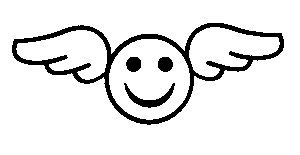TikTok Shop: Flop or bop?
From a snail slime problem to dodgy ads, TikTok’s e-commerce product is complicated
2023-11-09
In mid September, TikTok launched TikTok Shop, its e-commerce product, in the US. A little over a month later, TikTok Shop was banned in Indonesia, its first and largest market. The Financial Times reports that given its huge success, Indonesia was widely considered a potential blueprint for its ambitions in other markets, including the UK and US. Given these tensions, it’s clear that TikTok Shop is at a pivotal juncture when it comes to ambitious goals to become “Amazon for Gen Z.”
The US has proven to be a difficult market to capture when it comes to e-commerce on social platforms — Instagram drastically scaled back shopping features in 2022, following parent company Meta’s first revenue decline in history. Yet TikTok Shop seems to be catching on in the US, at least in part. Tech writer Kat Tenbarge reports that teens are bringing in millions of views using the new feature, despite the fact that TikTok forbids minors from applying to the program.
This is an evolution of teens and twenty-somethings using TikTok to market and grow their brands. Brands like Stocked and 202st, led by young entrepreneurs, have leveraged organic attention on TikTok to drive traffic to IRL pop-ups. And influencer Matilda Djerf has grown her fashion brand Djerf Avenue into a $22m business, in part based on the popularity of the brand’s clothing on TikTok.
Now, teen and adult users alike are taking advantage of the TikTok shop apparatus to make cash, and by doing so, they’ve changed the vibe of the app as a whole. The For You Page is now filled with videos advertising products sold on TikTok Shop — many of which don’t even show the product. Think shaky videos of an ambiguous background referencing how good a pair of pajamas look on, without a hint of that pair of pajamas, or any pants at all, in sight. These videos are low lift for creators, allowing them to make commission from advertising products they might not even own themselves.
They also act as a new kind of clickbait — with suggestive claims that motivate viewers to click the product link to see if the product lives up to the hype. This turn towards high-speed, low-effort marketing is a departure from audience’s recent preference for well-thought-out promotion — creators like Bella Poarch have been celebrated for their high-production approach to ads, while others adopt a humorous, self-aware style when creating sponsored content. Yet TikTok Shop ads eschew quality and effort for quantity and speed. “TikTok Shop has emerged as a new concept altogether — not fast-fashion production, but fast-advertising production,” writes Tenbarge. “It’s a no-holds-barred approach to affiliate marketing, a type of influencer brand marketing popularized by early-to-mid 2000s bloggers.”
Exhaustion with TikTok Shop is already apparent on the app, with creators sharing tips on how to block and filter ads promoting products. “Creators have been pushing products with varying degrees of obnoxiousness on us for years in social media videos,” writes Wes Davis for The Verge, “and one wonders if cutting out the extra steps could supercharge that.” Some have gone so far as to suggest that the shopping apparatus will be the downfall of TikTok as a whole.
Frustration with incessant advertising goes hand-in-hand with a concern about the kind of products sold on TikTok Shop — which range from cleap plastic items to potentially counterfeit products listed at steeply discounted prices. Thousands of bottles of questionable skincare claiming to be a viral COSRX snail mucin serum have sold for as little as $5. TikTok has ambitions for its Shop to become Amazon for Gen Z, but its current model has been compared more frequently to Temu or AliExpress, the Chinese online marketplaces known for their vast selections of cheap products. Though established brands like Beauty Bay have their own in-app shops, marked by a verified badge, TikTok Shop has ground to cover if it wants to be associated with reliability across categories.
Yet many tactics in place succeed in appealing to younger audiences — TikTok positions British beauty brand Made by Mitchell as a case study in TikTok Shop growth and success. Made by Mitchell uses methods like mystery bags, where the buyer receives an unspecified assortment of products, an approach typically used by by brands that target younger cohorts like cartoon-centred Tokidoki.
TikTok Shop also stands at odds with growing imperatives to reduce influencer-driven consumption, exemplified by the de-influencing movement that took off earlier this year on TikTok in which creators encouraged viewers to skip buying viral products. TikTok Shop seeks to streamline the viral product-to-purchase pipeline by making it easier than ever to order, say, that bottle of snail mucin serum you’ve seen on your FYP — a wholesale rejection of de-influencers debunking the “need-to-have-it” urge associated with viral products.
However, the model of TikTok Shop seems to be a perfect match for another consumer trend led by TikTok — the rise of dupes, a term that refers to alternatives to an expensive, and typically viral, product. As Amy Francombe wrote for the Digiverse, “‘dupe queens’ … have emerged as one of the most popular influencer archetypes of the moment,” discussing “expensive hair and skin products that ‘aren’t worth it’... then recommend[ing[ cheaper alternatives.” Against a landscape populated by dupes that range from similar products to straight-up knockoffs, it’s easy to understand why those COSRX serum dupes have evolved into what Wired calls a full-on “snail slime problem” on TikTok.
It’s possible that TikTok can simply lean into its existing virality cycle and and in-app dupe machine to grow the popularity of the shopping feature — but that won’t make it the Amazon of Gen Z (though Amazon itself is a go-to for dupes). The app will need to crack down on shaky ads and suspicious products, and reconcile with the effects of movements to de-escalate consumption, to reach true bop status.
For more content like this, explore the rest of the Digiverse, or connect with us on TikTok or Instagram. If you’re a brand or business and want to inspire your audience in innovative ways, reach out to our strategic & creative lab eve@thedigitalfairy.co.uk.

Welcome to the Digiverse, your portal to internet enlightenment.
From IRL to URL, digest the best of algorithm-driven culture – news, trends and insights – powered by The Digital Fairy.










